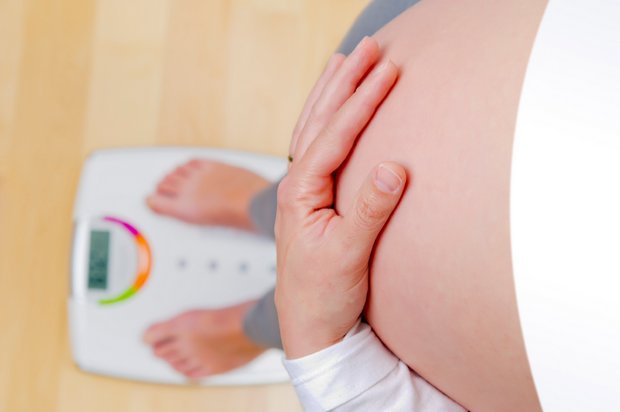 Weight is often a sensitive topic for many women. Some are always fretting if they are too thin, too fat or just not right. It doesn’t help that much of the world around us is used to the idea of thin or fat but not healthy. In cases of women of average size and weight, appearance is hardly the right tool or a proper indication of good health. Having said that, going crazy on food and neglecting exercise is hardly good for the pregnant woman and baby either. And so is dieting; a fetus cannot survive on the mother’s fat stores alone since it provides only calories but no nutrients.
Weight is often a sensitive topic for many women. Some are always fretting if they are too thin, too fat or just not right. It doesn’t help that much of the world around us is used to the idea of thin or fat but not healthy. In cases of women of average size and weight, appearance is hardly the right tool or a proper indication of good health. Having said that, going crazy on food and neglecting exercise is hardly good for the pregnant woman and baby either. And so is dieting; a fetus cannot survive on the mother’s fat stores alone since it provides only calories but no nutrients.
How much weight should or can I gain?
According to BabyCenter.comand BabyWorld, the average healthy woman should gain about 12 kilos on a normal diet. Yet there are some women who will gain close to nothing or 20 over kilos – this all depends on the woman’s metabolic rate, level of activity and pre-pregnancy weight. BabyCenter.comhas the following breakdown based according to BMI levels…
If pre-pregnancy weight was in the healthy range for your height according to your healthcare provider (a BMI of 18.5 to 24.9), you should gain between 25 and 35 pounds, gaining 2 to 5 pounds in the first trimester and about 1 pound per week for the rest of your pregnancy for the optimal growth of your baby.
If you were underweight for your height at conception (a BMI below 18.5), you should gain 28 to 40 pounds. If you were overweight for your height (a BMI of 25 to 29.9), you should gain 15 to 25 pounds. If you were obese (a BMI of 30 or higher), you should gain no more than 15 pounds.
If you’re looking at the calorie count, be aware that energy requirements increases only by about 15%, which means that adding about 300 to 500 calories a day will be sufficient (as your metabolic rate speeds up and so forth).
So where does all the weight go to?
In the book What to Expect When You’re Expecting by Eisenberg, Murkoff and Hathaway, approximate quantities are as below (in pounds):
- Baby – 7.5 pounds (3.1 kg)
- Placenta – 1.5 pounds (0.6 kg)
- Amniotic fluid – 2 pounds (0.9 kg)
- Uterine enlargement – 2 pounds (0.9 kg)
- Maternal breast tissue – 2 pounds (0.9 kg)
- Maternal blood volume – 4 pounds (1.8 kg)
- Fluids in maternal tissue – 4 pounds (1.8 kg)
- Maternal fat stores – 7 pounds (3 kg)
Also, the authors noted that the old school of thought that weight gain should be limited to 20 pounds is now considered as insufficient. Babies whose mothers gain under 20 pounds (9 kg) are more likely to be premature, small for their gestational age, and to suffer growth retardation in the uterus.
In another book by Dr Miriam Stoppard, she mentions that prolonged labours are directly related to the way in which the uterus has grown during the pregnancy, and that in turn depends on how well nourished the mother has been.
The ultimate advice for a lot of pregnant women is stop counting the kilos and instead to pay attention to how well we eat as well as exercise (but only after consulting a doctor on what you can do safely).






